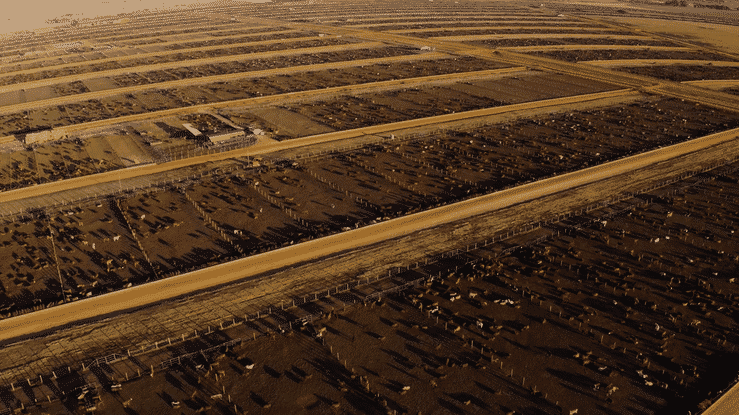
Jun 05, 2023 Where’s the Beef? Climate Change and Animal Product Consumption
On May 19, 2023, a consortium of 98 organizations and individuals sent a letter to Dr. Hoesung Lee, the current chairman of the Intergovernmental Panel on Climate Change (IPCC), expressing their deep concern at “the potential influence of the meat industry’s years-long campaign of interference on any climate recommendations that include plant-based diets as a solution.”
The letter specifically mentioned the draft of an IPCC report leaked to journalists shortly before COP26 took place in Glasgow in 2021. In its reporting on the leak, the British Broadcasting Corporation (BBC) noted that most of the 32,000 comments by various governments, corporations, and interested parties in the leaked draft were constructive and were designed to improve the final report. However, some were more self-interested. For example, Brazil and Argentina, two of the world’s biggest producers of beef products and animal feed, argued against including comments about the reduction of meat consumption leading to the reduction of greenhouse gas emissions.
The impact of the interest in the IPCC language by Brazil and Argentina (and other stakeholders?) is now evident in the latest IPCC Assessment Report (AR6) released in March 2023. The full report is not yet available, but a “longer” 85-page draft includes twelve mentions of “diet” or “dietary,” but usually in the context of phrasing such as “balanced, sustainable healthy diets.” Further clarification of such a diet is provided in a footnote as follows – “Balanced diets refer to diets that feature plant-based foods, such as those based on coarse grains, legumes, fruits and vegetables, nuts and seeds, and animal-sourced food produced in resilient, sustainable and low-GHG emission systems, as described in SRCCL.” [The SRCCL is the IPCC’s special report on Climate Change and Land issued in 2019.] In other words, the 2023 IPCC report still recommends switching to a plant-based diet to mitigate global warming. The language of the latest recommendation is, however, less direct
The effect of animal agriculture on global sustainability remains a strongly contested issue. The initial (2006) FAO report, Livestock’s Long Shadow, reported that animal agriculture contributed 18% of global greenhouse gas warming. However, the FAO revised that figure to 14.5% in a later 2013 report (Tackling Climate Change Through Livestock). In a careful analysis of the data used for the two competing estimates and the various claims about the climate impact of animal agriculture, Richard Twine of UK’s Edgehill University concluded that 16.5% was the new minimum value for animal agriculture’s contribution to global warming. The livestock industry accounts for less than 2% of the worldwide GDP, although livestock provides non-monetary contributions to human livelihoods that are not captured by GDP. By 2030, if current consumption trends continue, livestock will produce 37% of the allowable emissions if the world is to keep warming to under 20C.
Climate change is not the only environmental impact resulting from agriculture. A 2019 article by Nicoletta Batini of the International Monetary Fund reports that, beyond its effects on climate change, the agri-food sector uses half the world’s ice- and desert-free land and three-quarters of its fresh water. Agriculture is also the prime cause of Earth’s current mass animal extinction and global deforestation, according to the Intergovernmental Science Policy Platform on Biodiversity and Ecosystem Services (IPBES) 2019 report. Farm animals and humans constitute 96% of mammalian biomass in the world, leaving only 4% for all wild mammals.
An International Monetary Fund paper by Batini comments, “[I]t is hard to overstate the planetary benefits of greening the agri-food sector. The IPCC’s 2019 report indicates that by 2050, reforms of crop and livestock activities and agroforestry could mitigate up to a third of all greenhouse gas emissions. . . . Shifting production and consumption toward plant-based foods would halt deforestation and enable conservation of critical ecosystems.” Oxford University’s Our World in Data concludes that switching the world to a plant-based diet would provide enough food for ten billion people yet free up 75% of agricultural land for rewilding.
Investment funding has poured into alternative protein and cultured meat products. For example, China recently signed a $300 million agreement to buy lab-grown meat from several Israeli cultured meat companies. Despite the recent news about falling demand for alternative protein and cultured meat products, George Monbiot, a Guardian newspaper columnist, notes the China deal “marks the beginning of the end of livestock farming. But it won’t happen quickly: the great suffering [of farmed animals] is likely to continue for many years.”
As the world heads towards a human population of ten billion, it is becoming clear that the current agriculture and food systems need to change. As with global energy supplies, the changes needed in agriculture and food supply will be economically disruptive, but with planning and new technology, the changes could end up being a win for people (better human health and decreased poverty), animals (fewer farmed animals confined and suffering throughout their lives), and the environment (less land used for agriculture leaving more land for rewilding, biodiversity, endangered animals and carbon sequestration).
Some companies and individuals will inevitably resist such changes and campaign against them. Still, for a sustainable and healthy world, all of us must work collectively to change our diets and encourage initiatives that support biodiversity and a healthy environment.


